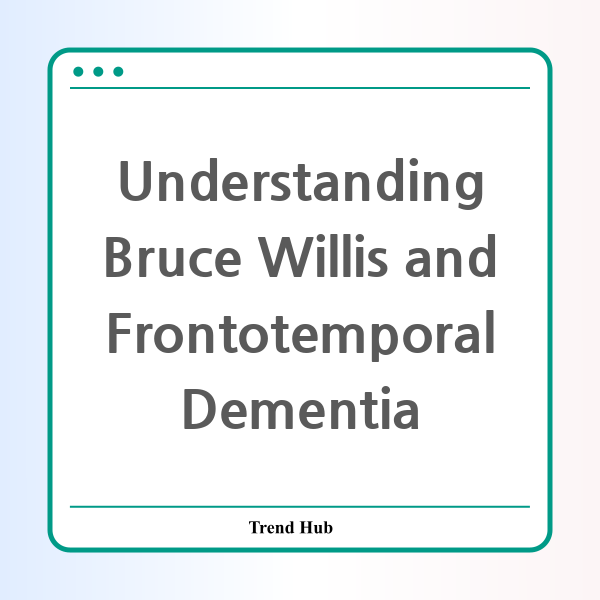* This website participates in the Amazon Affiliate Program and earns from qualifying purchases.

What does Bruce Willis' recent diagnosis of frontotemporal dementia mean for his life and legacy? The beloved actor, known for his iconic roles and charismatic presence, has been making headlines for more than just his films. In March 2022, his family revealed that he was diagnosed with aphasia, a condition that affects his ability to communicate. Fast forward nearly a year, and in February 2023, it was announced that his condition has progressed to frontotemporal dementia (FTD).
FTD is a complex and often misunderstood group of disorders that primarily affects the frontal and temporal lobes of the brain. This form of dementia is particularly challenging because it leads to changes in personality and behavior, along with difficulties in speech and language. Unlike other types of dementia, which may show more predictable patterns of progression, FTD can vary widely from person to person.
The announcement from Bruce’s family, including his daughters and wife, emphasized the significant impact of the disease on his cognitive abilities. They have remained vocal about his journey, sharing updates on social media to shed light on this rare condition. For instance, Rumer Willis reported on March 18, just before Bruce's 70th birthday, that her father is "doing great," showcasing the family's continued support and love.
Dr. Hofeldt, a specialist in dementia, has explained that FTD is characterized by a range of symptoms, including:
- Changes in social interaction and personality
- Aphasia or difficulties with speech and communication
- Loss of inhibition and emotional expression
- Compulsive behaviors and changes in diet
- Loss of executive functions like planning and problem-solving
These symptoms can vary depending on which part of the brain is affected and the severity of the damage. As the disease progresses, individuals may require 24/7 care due to declining abilities to think clearly and care for themselves.
One of the essential points Dr. Hofeldt raised is that FTD is not only a condition that affects the patient but also significantly impacts caregivers and families. Providing support and care for someone with FTD requires immense patience and understanding. It's crucial for families to prioritize their well-being while navigating this challenging journey.
Although the average life expectancy for someone with FTD can vary greatly, most individuals live anywhere from less than two years to over ten years after diagnosis. It's important to note that while FTD presents numerous challenges, current treatments aim to manage symptoms and improve quality of life, including medication and behavioral therapies.
As more information about Bruce Willis and his journey with frontotemporal dementia comes to light, it is vital for society to understand the complexities of this disease. Awareness can lead to better support systems not only for those diagnosed but also for their families and caregivers. As Bruce Willis steps away from his illustrious career, his legacy will undoubtedly continue to inspire and educate many regarding the realities of dementia.
FTD may be rare, but it is the leading form of dementia in younger individuals. Therefore, spreading awareness and providing resources can help those affected find the help they need. For anyone looking to understand more about dementia, engaging in discussions and sharing resources can make a significant difference.
To support individuals like Bruce and their families as they navigate this tough journey, we encourage readers to keep the conversation going and seek out community resources dedicated to dementia support.
* This website participates in the Amazon Affiliate Program and earns from qualifying purchases.